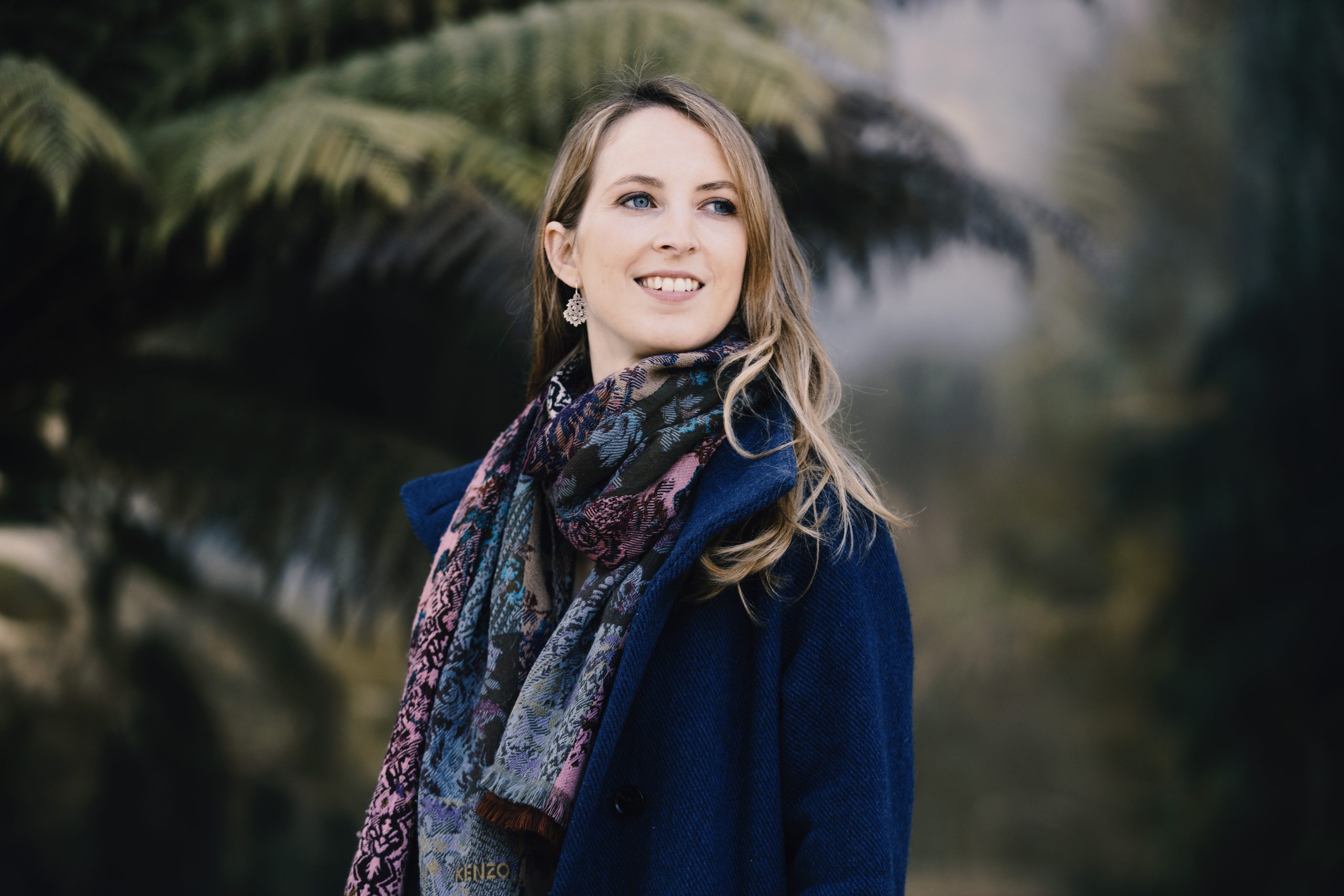Anne De Fornel
Concert pianist, musicologist, research director
Summer 2025

- Music
- Boston
- Washington, DC
” Working to promote women’s musical heritage is, for me, an essential mission in the fight against the invisibility and marginalization of female composers, who have been overlooked by the history of music.”
I am a Franco-American concert pianist and musicologist. I am currently Director of Research at the Conservatoire National Supérieur de Musique et de Danse de Lyon. Passionate about teaching, I also taught piano in Paris for many years. I’m keen to train both artistically and intellectually, which is why, alongside my instrumental training, I studied musicology, as well as the management of cultural enterprises and creative industries.
For me, it’s essential to closely combine instrumental practice and research activities. After writing the John Cage monograph for Éditions Fayard, I produced the album Cage Meets Satie (Paraty) with Jay Gottlieb. I’d like to renew this integrative approach, this time focusing on Nadia Boulanger. Having recorded the complete melodies of Nadia and Lili Boulanger with Lucile Richardot for the harmonia mundi label, I now intend to write the first French-language biography of this key artistic figure of the 20th century. This research project is particularly close to my heart, as I’m deeply committed to the promotion of musical heritage. I’m the scientific director of La Boîte à pépites – Elles Women Composers – and I’m currently directing a collective work on the collections of women composers at the BnF. I also recently conceived, with Mathias Auclair and Héloïse Luzzati, the BnF and Radio France’s Third European Music Season “Révélations! Composers of yesterday and today”.
Director of Research at the Conservatoire National Supérieur de Musique et de Danse de Lyon, Anne de Fornel is a graduate of the CNSMDL (Master of Piano), Sorbonne University (Doctorate in Music and Musicology) and HEC Paris (Mastère Médias, Art et Création). In 2019, she published the monograph John Cage with Éditions Fayard, recognized as a “major work” (Diapason) and a “permanent dazzler” (Diacritik). She performs as a pianist throughout the world, and recently made her debut with Lucile Richardot at London’s Wigmore Hall, Bruges’ Concertgebouw, Hamburg’s Elbphilharmonie, Antwerp’s deSingel and the Philharmonie de Paris. Their triple album Les Heures Claires has received unanimous critical acclaim (International Classical Music Awards, Choc de Classica, Diamant d’Opéra Magazine, Choix de France Musique).
My project for the Villa Albertine focuses on the study of Nadia Boulanger’s protean career from a historical, social and poetic perspective, while offering in-depth analyses of her still little-known compositions. It will also analyze the struggle she waged as a woman in her multiple activities (pedagogue, pianist, organist, conductor, composer, music critic, artistic advisor), understand her pedagogical legacy and show how she served as an example for subsequent generations of female artists.
For me, working to promote our women’s musical heritage is an essential mission in the fight against the invisibilization and minorization of women composers, who have been overlooked in the history of music. It’s a privilege to be able to study and decipher manuscripts by women composers, to evaluate them and to contribute to making them better known. In terms of programming, the percentage of works by women composers remains extremely low, and they are often the same creators. Yet there is a profusion of accessible archives, and dedicated databases are a considerable help. Today, the musicological field as a whole must contribute to this recognition.
As a Franco-American musician and researcher, I’m interested in the evolution of gender issues in the classical music milieu in France and the United States. The case of Nadia Boulanger is of particular interest, since in parallel with her career in France, she developed close and enduring institutional ties in the United States. This is evidenced not only by the numerous concert and lecture tours she undertook, but also by the many courses she taught at prestigious universities. And let’s not forget that she was the first woman to conduct the Boston Symphony Orchestra and the New York Philharmonic Orchestra. I’d like to take this opportunity to explore a number of dialectical questions: in the absence of a proclaimed feminist stance, how did she manage to occupy a leading role as a female artist in these two countries? What did she have to overcome to develop a brilliant career, and what differences did she perceive between the two countries? Is she still a role model for new generations of French and American female musicians? My residency at the Villa Albertine will enable me to consult sources essential to the progress of my research: the Nadia Boulanger collection at the Eda Kuhn Loeb Music Library at Harvard University, and at the Library of Congress in Washington. Finally, on a more macroscopic scale, I wish to analyze the place occupied by the study of women composers within the academic and musical curricula of Boston and Washington.
In partnership with

Le Centre Nadia et Lili Boulanger

Societe Generale Foundation
The Societe Generale Foundation contributes to the development of a more inclusive and sustainable society by supporting initiatives that generate a positive social impact in the fields of Education, Culture and the Environment. Driven by an entrepreneurial spirit, it provides support to structures of general interest and cultural organizations that carry out projects with a high impact potential, whether they are incipient or large-scale initiatives. The Foundation operates in France, at both national and regional level, and also supports multi-country or internationally oriented projects.
As a major partner of Villa Albertine’s residencies, the Societe Generale Foundation is committed, through this exceptional partnership, to supporting the career development of artists and promoting artistic excellence. It contributes to transatlantic dialogue through the arts and to the international reach of French culture. The Foundation particularly supports the development of classical music within the residencies through a dedicated call for projects, continuing a commitment of more than 38 years in this field. This partnership also builds upon the Societe Generale Group’s ongoing support of contemporary art for the past 30 years, notably through a collection of nearly 1,800 works — paintings, graphic arts, photographs and sculptures — by French and international artists. Through these commitments, Societe Generale reaffirms its dedication to artistic creation and excellence, in France and internationally.
For more information, visit https://fondation.societegenerale.com/en.


